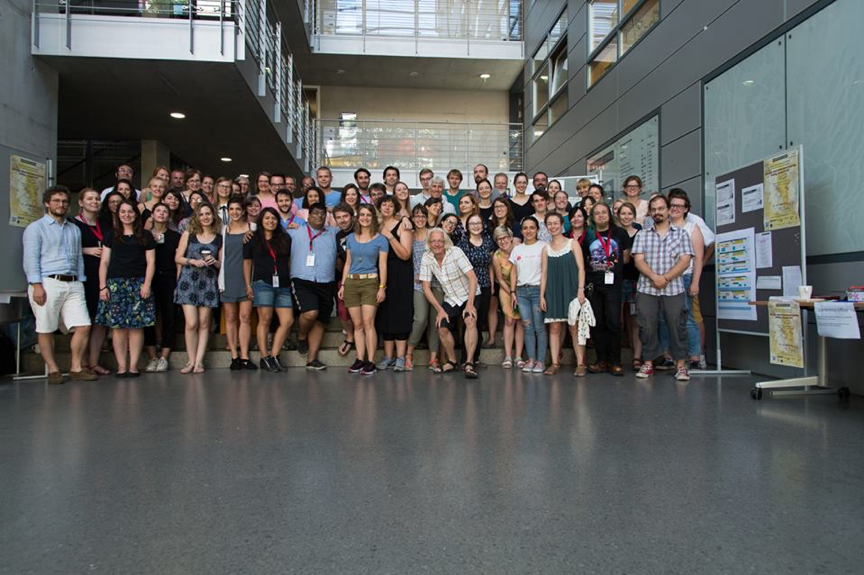Blog post written by Nathalie Walker, edited by Darja Fišer and Jakob Lenardič
One central focus of CLARIN-D is the support of early-stage researchers in the Digital Humanities. Apart from our active participation in the ESU, the European Summer School in Digital Humanities, which takes place each year in Leipzig, we engage in a number of User Involvement Activities on a regular basis: we offer information booths at various conferences and workshops, special courses and conventions for PhD candidates, scholarships for researchers to participate in conferences or workshops, Use Cases which showcase the use of tools and services, and internships at our eight different CLARIN-D centres.
Eva Huber, who is currently enrolled in the MA programme “Computational Linguistics” at the University of Tübingen, is a perfect example to show how early-stage researchers can profit from CLARIN-D’s offers. After completing a BA in English Linguistics at the University of Manchester, Eva came to the University of Tübingen for a two-month-internship at the Tübingen CLARIN-D centre. She had always been fascinated by the concept of research infrastructures, so the internship was the perfect opportunity to look behind the scenes of such an infrastructure and to apply her knowledge and skills in her work with GermaNet, a machine-readable lexical-semantic network for German maintained by CLARIN-D. During her internship, she integrated Swiss Standard German terms into GermaNet, with which she expanded her knowledge on computational linguistics and gained her first hands-on programming experiences after her more theory-based BA. This experience finally led to her decision for an MA with a greater focus on the computational side of linguistics. Now that her internship is completed, Eva has also been able to continue her work on GermaNet and other CLARIN-D projects through her job as a research assistant in CLARIN-D.
The internship also allowed Eva to participate in a number of CLARIN events: at the ESU 2018 in Leipzig, for instance, Eva took part in two workshops offered by members of CLARIN-D. Both Nils Reiter and Sarah Schulz’s workshop on “Reflected Text Analysis in the Digital Humanities” and Tommi A. Pirinen’s “The humanities scholar’s perspective on rule-based machine translation” expanded Eva’s skills in programming and convinced her that her future lay in the realm of the Digital Humanities. Such UI activities as the workshops at the ESU are a regular CLARIN-D feature and they allow early-stage researchers not only to deepen their knowledge in various relevant fields, but also to get to know other researchers, both young and senior, and to thus widen their network considerably.
Attending the CLARIN Annual Conference in Pisa in 2018 is one of Eva’s personal highlights of her university career so far: she enjoyed meeting other researchers from different backgrounds and got to know the internal aspects of research infrastructures on a more practical and hands-on level. Her internship also led to her participation in the 10th Global WordNet Conference 2019 in Wroclaw, where she presented her first paper together with CLARIN-D national coordinator Erhard Hinrichs on “Including Swiss Standard German in GermaNet”.
Click here to read more about Tour de CLARIN

